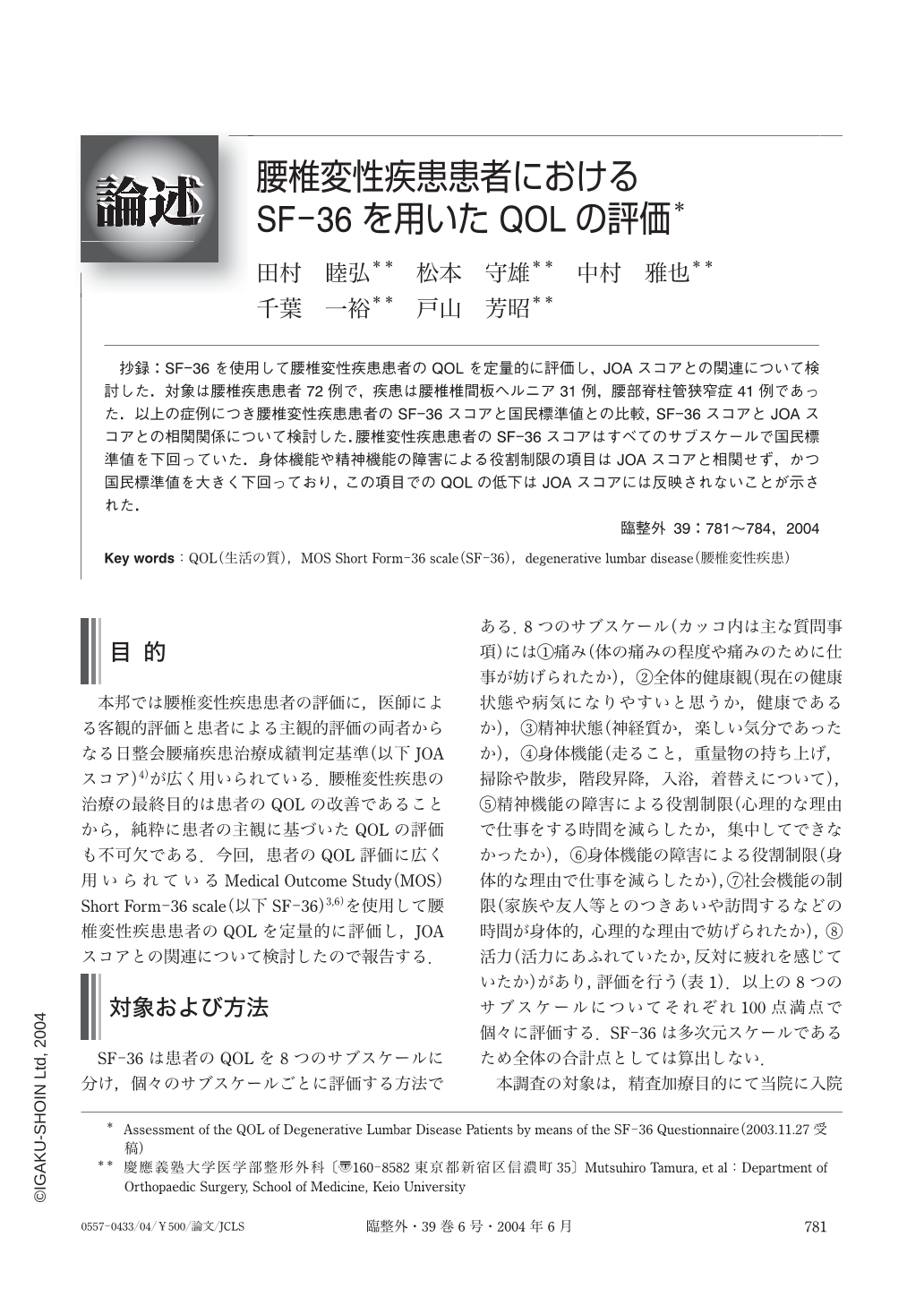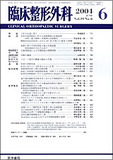Japanese
English
- 有料閲覧
- Abstract 文献概要
- 1ページ目 Look Inside
抄録:SF-36を使用して腰椎変性疾患患者のQOLを定量的に評価し,JOAスコアとの関連について検討した.対象は腰椎疾患患者72例で,疾患は腰椎椎間板ヘルニア31例,腰部脊柱管狭窄症41例であった.以上の症例につき腰椎変性疾患患者のSF-36スコアと国民標準値との比較,SF-36スコアとJOAスコアとの相関関係について検討した.腰椎変性疾患患者のSF-36スコアはすべてのサブスケールで国民標準値を下回っていた.身体機能や精神機能の障害による役割制限の項目はJOAスコアと相関せず,かつ国民標準値を大きく下回っており,この項目でのQOLの低下はJOAスコアには反映されないことが示された.
The Medical Outcome Study Short Form-36 (SF-36) scale has been widely used to assess patient QOL, and in this study it was used to quantitatively assess the quality of life (QOL) of degenerative lumbar disease patients. The subjects were 72 patients (45 males and 27 females) with lumbar spinal disease. 31 of the patients had disc herniation, and the other 41 had spinal canal stenosis. The patients' SF-36 scale scores were compared with the national standard values, and the relation between the SF-36 scores and the Japanese Orthopaedic Association (JOA) scores was investigated. All of the SF-36 subscale scores of the patients were be low the national standard values. There was no correlation between the JOA scores and the SF-36 subscale scores for RP (role limitation due to physical problems) or RE (role limitation due to emotional problems), and the RP and RE scores were much lower than the national standard values. These findings suggest that patients with low back disorders have poor QOL as measured by the SF-36, and that RP and RE represent subsets of QOL measurement that cannot be evaluated by the JOA score.

Copyright © 2004, Igaku-Shoin Ltd. All rights reserved.


